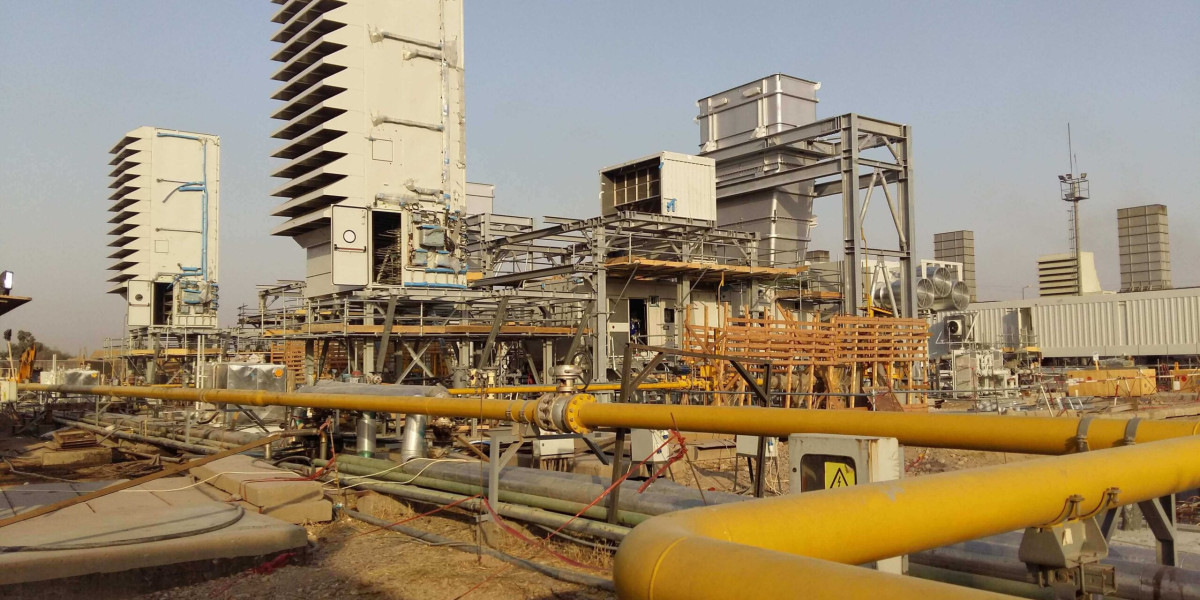Iraq's construction industry is going through a major transition driven by expanding investment opportunities, urbanisation, and infrastructural development. At the forefront of this progress is the role of an Iraq Construction Company, which acts as a cornerstone for national growth by delivering innovative, reliable, and sustainable projects. From highways and bridges to residential complexes and energy facilities, construction companies are vital in reshaping Iraq’s economic and social landscape.
The Importance of an Iraq Construction Company in National Growth
Iraq’s journey toward modernization requires a robust construction sector capable of addressing the demands of a rapidly evolving society. An Iraq Construction Company not only provides physical infrastructure but also strengthens the economy by creating jobs, boosting trade, and fostering investment opportunities. These companies play a vital role in rebuilding war-affected areas, enhancing urban planning, and creating modern facilities that support both local communities and industries.
Key contributions include:
· Infrastructure Development: Roads, bridges, airports, and ports that connect cities and regions.
· Urban Housing Projects: Affordable and luxury housing solutions to address population growth.
· Commercial Spaces: Shopping centers, offices, and mixed-use developments that drive economic activity.
· Industrial Facilities: Factories, warehouses, and logistics hubs that strengthen Iraq’s industrial sector.
· Energy Projects: Power plants, oil refineries, and renewable energy facilities that sustain the nation’s energy needs.
Adopting Modern Techniques in Construction
Iraq is not an exception to the global trend in the construction industry towards sustainability and modernisation. Today, construction companies in Iraq are adopting advanced methods such as:
· Building Information Modeling (BIM): Improving design accuracy and reducing errors.
· Prefabrication and Modular Construction: Reducing project timelines while maintaining high quality.
· Smart Project Management Tools: Enhancing efficiency, communication, and resource allocation.
· Green Construction Practices: Using sustainable materials and energy-efficient solutions.
By implementing these techniques, Iraqi construction firms align with international standards and ensure long-lasting, cost-effective results.
Challenges Facing the Construction Sector in Iraq
Despite the remarkable opportunities, the industry faces several challenges. Projects are frequently delayed by complicated laws, financing shortages, and political and economic uncertainty. Additionally, the lack of advanced infrastructure and skilled workforce can pose hurdles for large-scale developments.
Other challenges include:
· Security Concerns: Impacting investor confidence.
· Bureaucratic Delays: Slowing project approvals and implementation.
· Material Costs: Fluctuations in supply chain pricing.
· Skill Shortages: Limited availability of trained professionals for modern technologies.
Addressing these challenges requires strong collaboration between the government, private sector, and international investors.
Opportunities for Growth and Investment
Despite challenges, Iraq’s construction industry offers immense growth potential. The government’s commitment to rebuilding infrastructure and diversifying the economy has opened new doors for both local and international construction companies.
Opportunities include:
· Urban Expansion: Building new residential neighborhoods to meet housing demand.
· Transportation Networks: Expanding rail, road, and air connectivity.
· Energy Infrastructure: Growth in oil, gas, and renewable energy projects.
· Smart Cities: Development of sustainable urban areas with smart technology integration.
For companies equipped with modern techniques and innovative approaches, Iraq provides a highly promising market.
The Role of International Partnerships
Collaboration with international firms is playing a key role in boosting the quality and scale of projects. Partnerships bring advanced technologies, global expertise, and new funding opportunities. They also contribute to knowledge transfer and capacity building for local firms, ensuring the sector becomes more competitive globally.
Sustainability and the Future of Construction in Iraq
Sustainability has become a central theme in modern construction worldwide. Iraq’s construction companies are increasingly focusing on reducing environmental impacts by:
· Designing energy-efficient buildings.
· Incorporating renewable energy solutions.
· Using eco-friendly construction materials.
· Developing urban green spaces.
As Iraq moves toward modernization, these sustainable practices will ensure long-term growth and improved quality of life for its citizens.
Conclusion
An Iraq Construction Company is more than just a service provider; it is a driver of economic progress, urban transformation, and national resilience. By embracing modern techniques, fostering international collaborations, and prioritizing sustainability, these companies are helping Iraq achieve its vision of modernization and growth. Despite obstacles, they continue to play a vital role in creating a thriving and interconnected future for the country.






